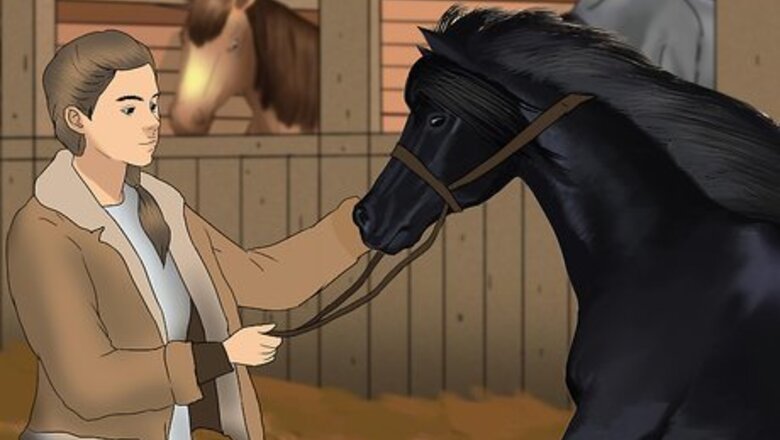
views
Making Your Horse's Environment Safe
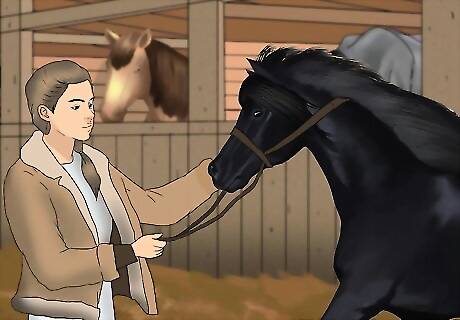
Show the horse where things are. A blind horse may not be able to find its food and water the same way a sighted horse would. Give it a little tour of its paddock and stable or stall when you first bring it in there. Giving your horse a tour of its space will help it be able to find everything it needs comfortably. If you lead the horse around the perimeter of the space you are keeping it in, the animal is less likely to injure itself bumping into walls or obstacles.
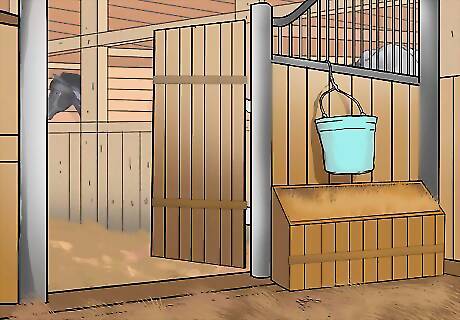
Make the horse's environment reliable. Keep water buckets, feed, and everything else your horse uses in the same place all of the time. It is a good idea to line them all up along one wall, so the horse can find everything it needs in one place. If you move things around, your horse will get confused and will not be able to find them. This should be done both in the horse's stall or stable and in the pasture where you give it time outdoors.
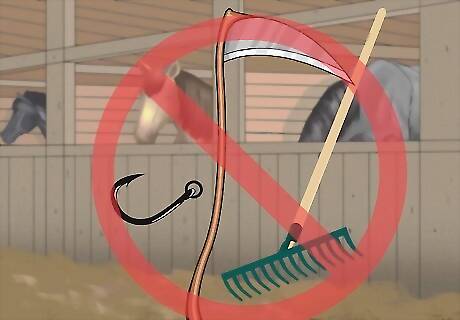
Remove items that could injure your horse. There are a variety of items in a typical stall or stable that a blind horse can bump into and injure itself on. Take items with jagged edges or points out of your blind horse's area. Try to make as many surfaces as possible smooth. If there are jagged items or surfaces in your horse's stall that cannot be removed, put padding on them. This will minimize the chance of your horse being injured if it runs into them. Do not use hooks to hang up buckets or feed in your horse's stall because it could injure its face or eyes on the hook as it moves around. Regularly check the items in the stall or stable that are at your horse's eye level so that it doesn't hurt itself.
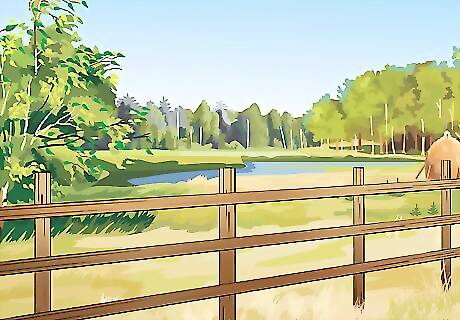
Ensure your paddock fencing is in excellent repair. A suitable fencing material is woven-wire or mesh-wire fencing that can keep the horse contained but will not injure it if the horse runs into it. Common products can be found at your local farm supply or home improvement store. Make sure you don’t have any down or broken fence boards that your horse could run into. Make sure the paddock is free from tree limbs or equipment that the horse could step on or trip over. Do not use barbed wire. Blind horses can easily get caught up in it and get injured. Blind horses, contrary to popular belief, cannot "sense" electric fencing. This type of containment system is not appropriate for blind horses at all.
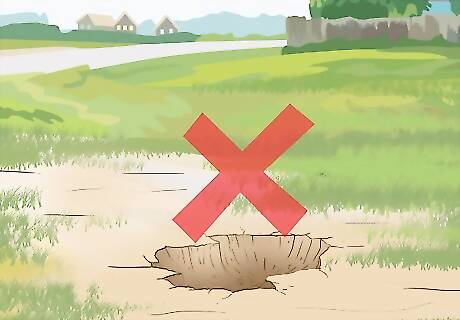
Remove obstacles from your blind horse's outdoor environment. You cannot keep a blind horse inside all of the time. Put it out to pasture often but make sure the pasture is safe. It should be free of holes, debris, and all sharp objects. Be sure to remove all stray items, such as mounting blocks left behind from the last rider, from the area before letting your blind horse roam. Make sure to fence off trees or poles in the pasture. You can also surround them with items that the horse can bump into safely, such as stacks of sand-filled tires. Pair your blind horse with a "blind buddy" - a sighted horse that gets along with your blind horse. It's best to choose a horse that has known your blind horse for a long time, including before your horse went blind. Consistently turn the two horses out together so that your horse has a friend to follow and be lead by.
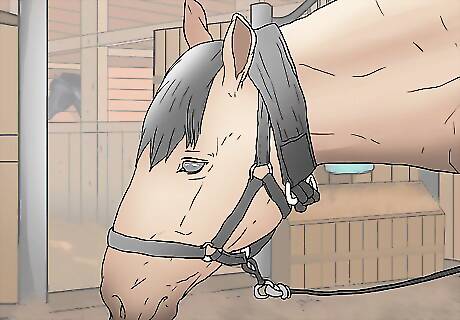
Keep the horse corralled as it is losing its sight. While a horse is losing its sight, it can become very scared and erratic. It is best for the horse's safety to keep it in a small, known area where it feels secure as it is adjusting to life without sight. The horse cannot be kept inside forever, but while it is acting erratically keeping it in a small space is safer. If it is in a small space, it cannot build up speed and run into things that could injure it.
Maintaining for Your Horse's Quality of Life
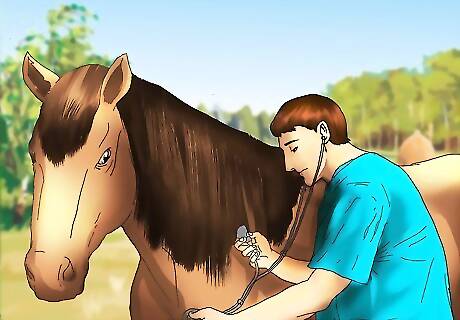
Get your horse veterinary care. If your horse is having vision problems, you should have it seen by a veterinarian as soon as possible. The quicker it gets veterinary attention, the more likely it is that the vet can save the horse's sight. Loss of vision can be a symptom of other medical problems, such as traumatic injuries or eye diseases. Because of this, it is important for the horse to be seen by a veterinarian so they can assess whether there are other problems that need to be treated. Your vet can treat your horse to improve its quality of life and may be able to help your horse regain some of its sight, depending on the cause of the vision loss.
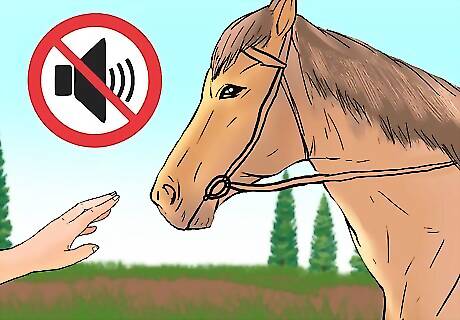
Don't sneak up on the horse. Never go up to your blind horse without making noise as you approach it. Start talking or making noises before you enter its stall. Then continue to make noise while you are approaching it. This will let the horse know that you are approaching it. Do not make sudden startling noises - simply talking to your horse will let it know where you are and what your movements are. If you don't talk or make noise, the horse may not know you are there. The surprise of someone touching it or talking nearby could cause it to spook or kick out uncontrollably.
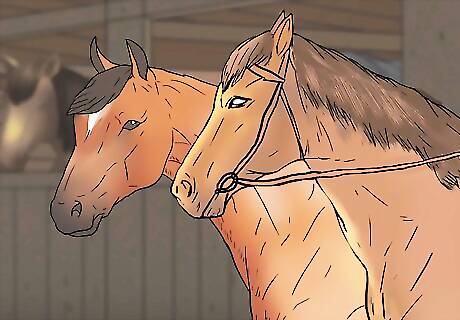
Find a buddy for your blind horse. Blind horses typically cannot be kept with a whole herd of horses. They will fall to the bottom of the pecking order and are likely to get bullied and injured by other horses. However, they should not be kept alone. With this in mind, find a compatible horse that your blind horse can hang out with. Look at horses that are friendly and non-aggressive towards other horses. If you are going to purchase a companion for your blind horse, put the horses together before you buy one. Make sure they get along before investing in another animal. Shetland ponies, goats and sheep make good companions for blind horses as well. If you have your own land, it may be worth knocking down the partition between two stables or stalls for your blind horse and its friend. This will allow your horse's friend to be in the same box but they will both have enough room not to bump into each other.
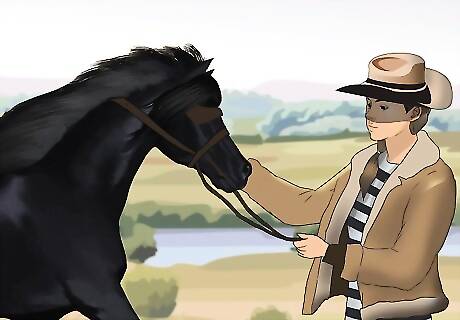
Spend lots of time with your horse. Go into your horse's stable every day, making sure it can hear you coming, and stroke it and feed it a treat. Groom it and care for it as you would any other horse. Spending this quality time with the horse is important for your relationship with it and for its happiness overall. A horse that has gone blind will not be able to spend as much time with other horses, so you need to give it social interaction and stimulation. Try to set a regular routine for when you spend time with your horse every day. This will increase the horse's mental stability. It will also give it something to look forward to every day.
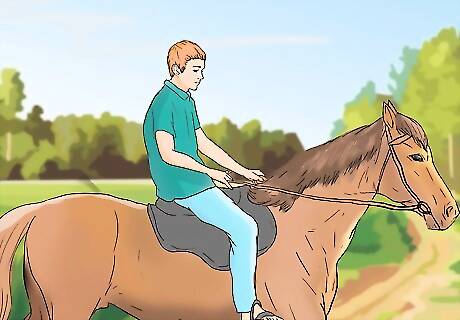
Ride your horse. Don't let a horse's blindness deter you from riding. Riding in a safe, closed area can be very fulfilling for a horse that enjoys having a rider. The time spent preparing your horse for riding, and actually riding, will bring a lot of much needed stimulation and activity into your horse's life. However, you need to make the decision to ride or not based on your specific horse. If your horse never liked a rider even when it was sighted, then riding it after it has gone blind is probably not a good idea. If you do decide to ride, make sure the footing is soft, level, and without holes or other areas for the horse to trip or frighten itself on. Try to choose a quiet time of day to ride with few distractions to scare your horse.
Deciding Whether You Can Care For a Blind Horse
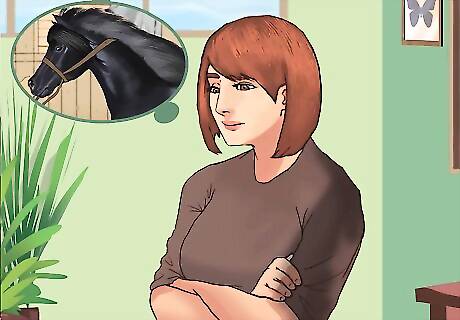
Ask yourself whether you have the time to care for a blind horse. Caring for a blind horse can take up a lot of your time. Even more than sighted horses, blind horses need one-on-one attention and care. Decide whether you have the time to commit to a blind horse or whether you have too many other commitments in your life to give enough time to a horse. It is extremely important to give a blind horse attention and stimulation, as its condition can easily lead to isolation and depression if it is left alone. If you cannot make this your priority, then you should not be in charge of caring for a blind horse. Although it will take up a lot of time, caring for a blind horse can be a very fulfilling endeavor.
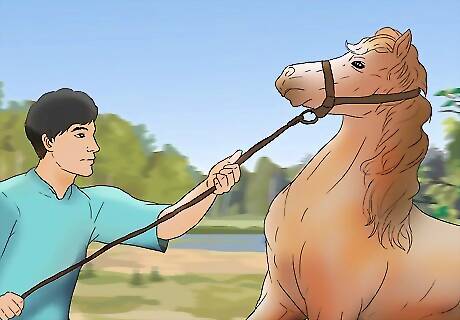
Get experience caring for sighted horses. It is best that those that care for blind horses already have experience caring for horses in general. Having some experience caring for sighted horses will give you the knowledge to understand the general needs of the horse. You then will just need to adjust your care to take the horse's lack of sight into consideration. Someone that has no experience with horses at all will have a lot to learn just caring for a sighted horse. Taking on the additional challenge of caring for a blind horse is likely too much. If you have bought a blind horse and have realized that you do not have the money or experience for it, remember that there are many loving horse charities that are experienced and will look after your horse.

Consider your budget. Caring for a horse in general can cost a lot of money. Caring for a blind horse can increase the starting costs, as your horse will need more individualized care and specialized equipment, such as special fencing. Think about your budget and make a decision about whether you can afford to care of a blind horse. In addition, if the horse's blindness is due to disease, it may need ongoing veterinary care.
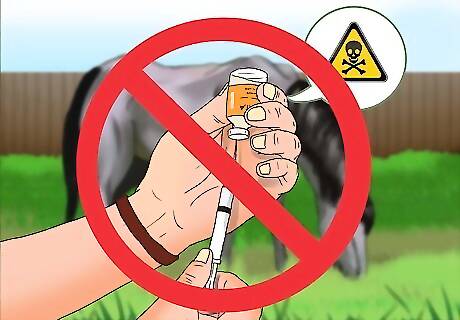
Don't euthanize a horse just because it's going blind. If your horse is going blind, your friends, family, or even your veterinarian may suggest having it euthanized. However, you should not euthanize a horse just because it is going blind. Many horses adjust well to blindness and can live happy lives without sight. If your horse is in pain or has a degenerative disease that is causing it to go blind, euthanasia may be the most humane decision to make. If your horse has a painful eye condition and may need to have the eye removed, do not be afraid to allow the vet to remove the eye. Many horses do great with just one eye. If you don't think you have the time to care for a horse that is going blind, try to find it another home. There may be a charity group or individual that would be willing to care of it.
















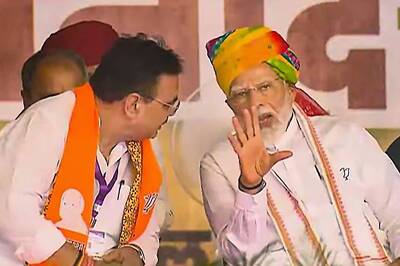

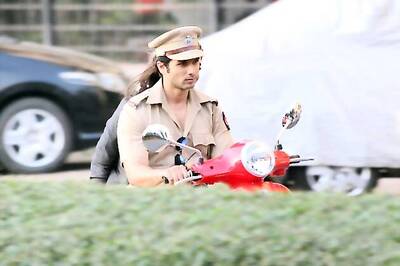

Comments
0 comment